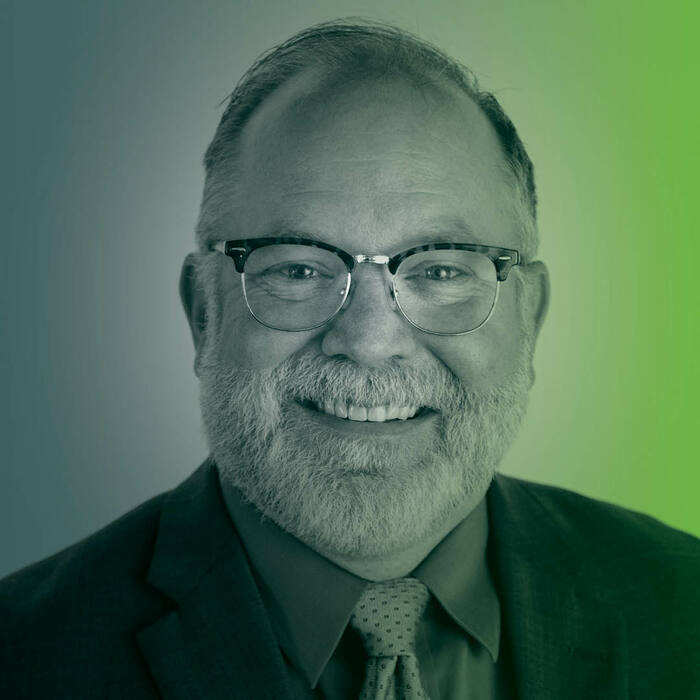What is your position with Ellipsis?
Chief Philanthropy Officer
How long have you worked there?
One month
Have you had any other roles/jobs during your tenure with Ellipsis?
I worked for Youth Emergency Services & Shelter (YESS) from September 2020 to June 2021 in a similar philanthropy role.

What drew you to work at Ellipsis?
I think the merger between two very good organizations — YESS and Youth Homes of Mid-America — to create a great organization — Ellipsis — was an attractive opportunity for me. As it’s newer, Ellipsis is not as well-known as either YESS or YHMA, but I’m excited to spread the word and share more about our successes that have happened and will happen in the future.
Can you recall a moment (during your career with Ellipsis) when you felt like you were in exactly the right place, doing exactly what you should be doing? What was that like?
Being in philanthropy for two decades, I’ve had many experiences with donors. There are times when you get those “goosebump moments,” or when a donor realizes what kind of true impact their gift is having in someone’s life. When I see those connections happen, that’s what it’s all about. I’m happy to be a facilitator between the connection a donor makes between their gift and the organization.
What are some of the more challenging aspects of this job?
There are so many great organizations within the Des Moines metro area and with Ellipsis being a newer name, one of the challenges is getting the word out and raising awareness we are here. Another challenge is hearing and reading the stories of our kids and remaining emotionally objective. It’s tough to see what they’ve gone through in their lives and how they’ve arrived at our doors. Getting here wasn’t a regular day for them — they’ve gone through a lot. And that can be tough to digest.
What are some of the rewarding aspects of the job?
I love hearing the success stories, for sure. Being able to share what success looks for our families and kids can really open the eyes to what our organization does. Having former clients who now have families, are holding down jobs and have moved forward with their lives is incredible evidence of the good work we do here at Ellipsis.
Why is it important to have residential programs in communities, and qualified people working in them?
I can’t imagine not having Ellipsis because there are so many [kids and families] positively impacted within the community or in a residential program on campus because of our services. To know some of the stories of our kids, and know it’s Ellipsis that gives them a chance to break the cycle and have some normalcy in their life really speaks to why we’re making a difference in central Iowa.
What is a misconception people may have about mental health treatment? How do you dispel that?
I think there’s such a stigma with mental health issues and treatment. It’s unjust. People feel compelled to keep it to themselves when they should be getting help. It may have gotten better in recent years due to the pandemic and more widespread need. Dispelling myths about mental health issues happens one conversation at a time and lets people know there should not be a stigma associated with any kind of mental health treatment or question.
If there’s anything else you’d like to add about your role, please feel free to do so!
The big thing for me, in my role, is that this isn’t just fundraising. I’m here to build relationships so people better understand Ellipsis and the work we do. People are asked to support central Iowa organizations all the time. But to know they made an impact, and to what degree, they need to understand the organization, which takes time. There’s also an education component of sharing how a donation of time, expertise or services is equally impactful. Support comes through multiple forms of engagement.
